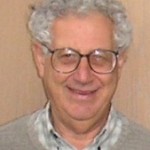Professor Stephen Turnovsky chaired the 15th Annual PET 14 conference on behalf of the Association for Public Economic Theory (APET) on the University of Washington campus from Friday July 11 to Sunday July 13. In addition to Turnovsky’s efforts, the local arrangements committee included economics faculty members Neil Bruce, Fahad Khalil, Jacques Lawarrée, Oksana Leukhina, Xu Tan, and Quan Wen.
The conference included a presentation by Robert Lucas on "Human Capital and Growth"; Ted Bergstrom on “Competing Altruists”; Yves Zenou on “Key Players”; and a number of parallel sessions, where hundreds of other presentations covering a broad range of relevant public economic issues were hosted. Additionally, a number of social events took place, including a welcome reception at the Burke Museum and a Tillicum Village Cruise.
Turnovsky, who has been involved with the APET journal and a regular attendee to PET conferences for several years was asked to host the conference a couple of years ago.
“[The University of Washington] is a great place to have conferences like this, as we’ve had several in the past,” Turnovsky said.
This is the fourth conference of this nature that Turnovsky has personally organized, the largest being when he co-chaired the 8th World Congress of Econometric Society at the UW in 2000. As chairman, Turnovsky was asked to organize the conference alongside a committee. One of his primary tasks was to select papers and put them into sessions, organized by topic.
“There were roughly 300 papers and about 79 sessions total,” Turnovsky said.
Turnovsky believes that his student helpers greatly benefited from participating in the conference.
“I had roughly 15 student helpers,” Turnovsky said. “[The conference] gave them opportunities to see people in the field, make contacts, and an opportunity to hear about some of the latest work in economic theory.”
Given the large amount of organization and work he put into the conference, Turnovsky believes things went smoothly overall.
“I’m very happy with the way things turned out,” Turnovsky said. “It was very successful.”
